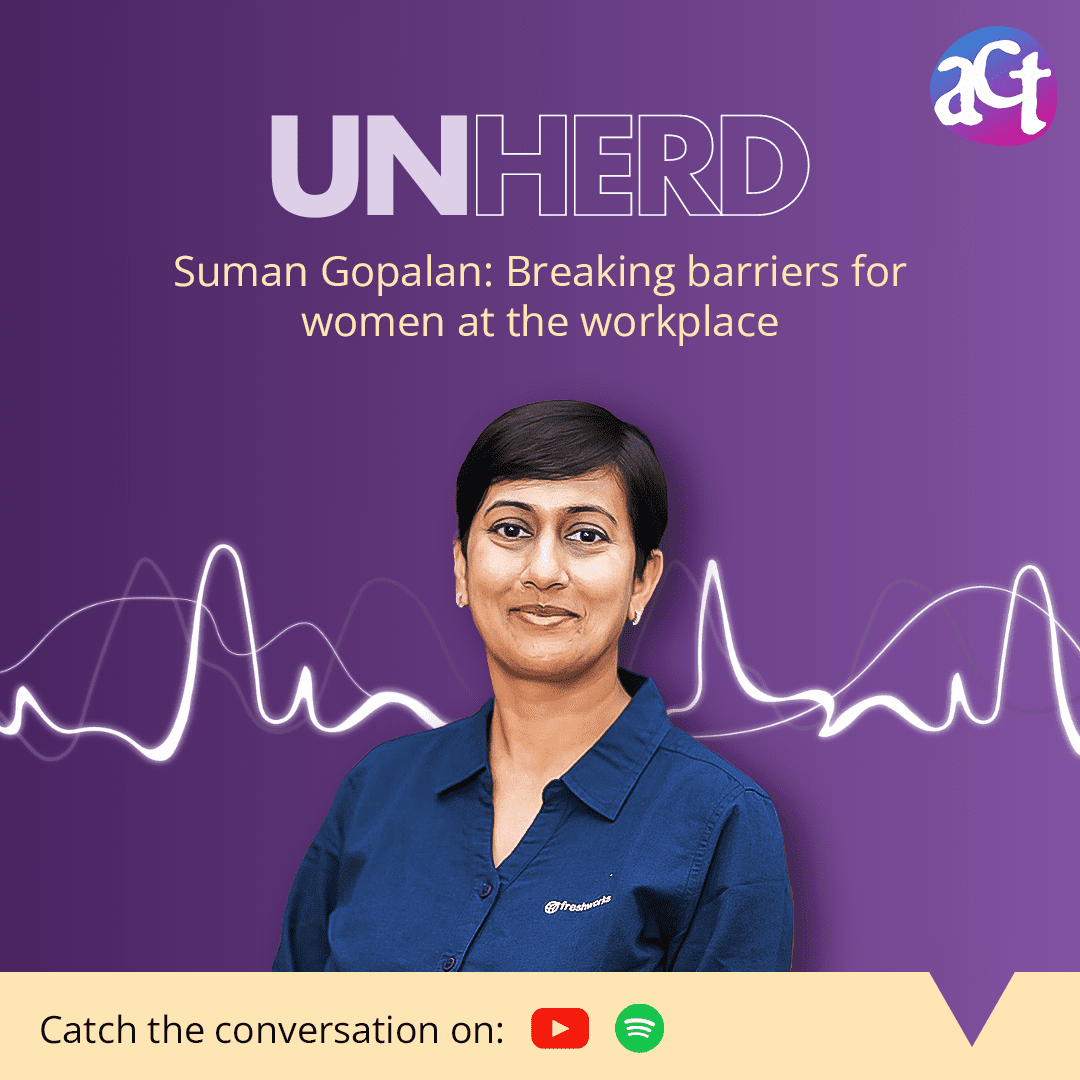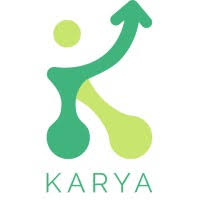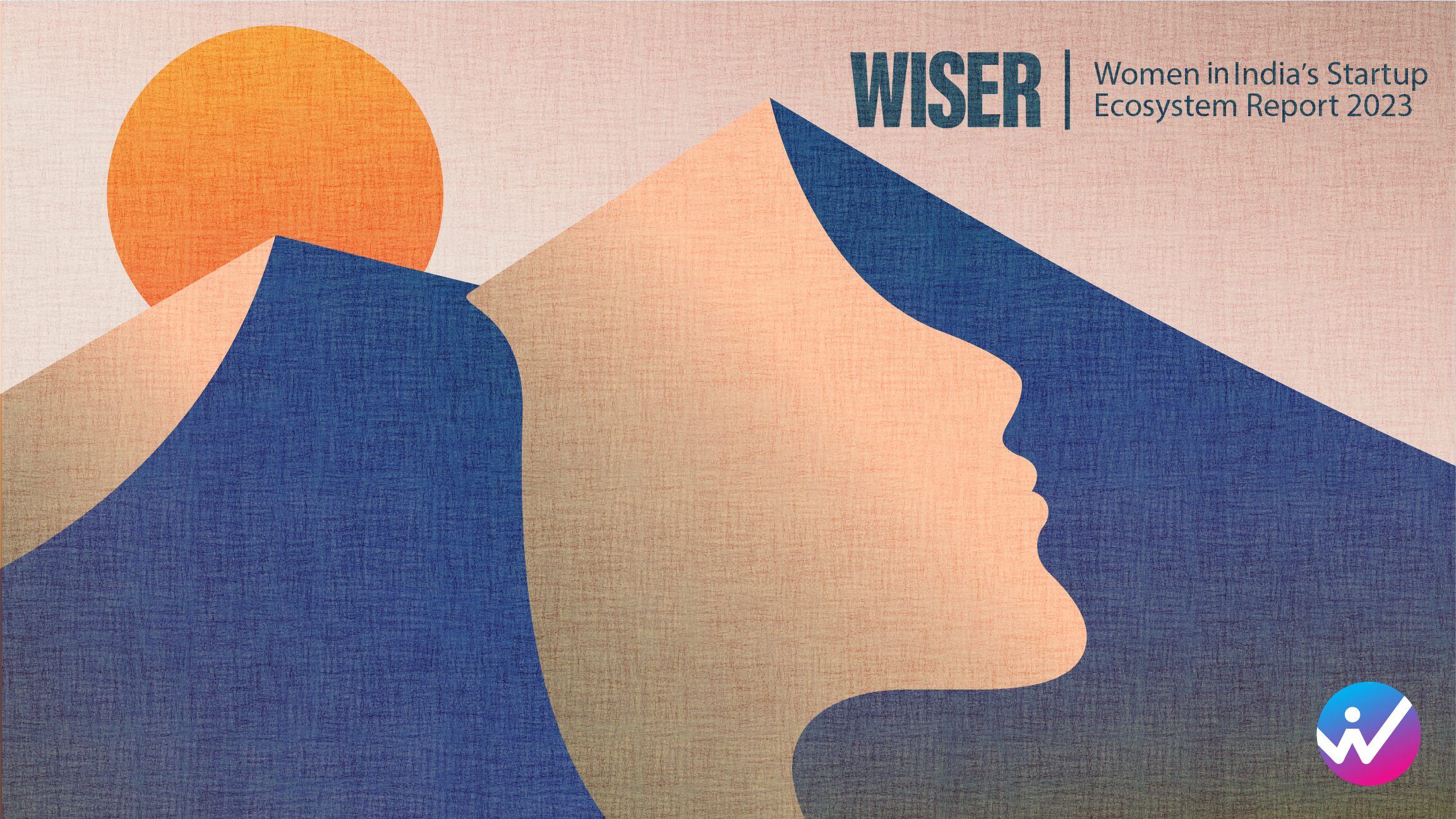Hosted by ACT, UnHerd brings you the unheard stories of individuals who are challenging conventional principles to disrupt the social impact landscape. From social entrepreneurs to venture philanthropists, dive into real-world conversations on what they’ve experienced and learned about changing the status quo.
Our fourth episode welcomes Suman Gopalan (Former CHRO at Freshworks) who, in conversation with Sowjanya Kanuri (Lead, ACT For Women), shares her philanthropic journey towards making workplaces more diverse and equitable for women.
Listen to this episode on our Spotify channel or watch the conversation on YouTube.
Sowjanya: Hello folks and welcome to the fourth episode of UnHerd – a podcast hosted by ACT that delves into the extraordinary stories of individuals who are challenging conventional principles to disrupt India’s social impact landscape.
India ranks 5th from the bottom out of 146 countries, when it comes to women’s economic participation and opportunity. 30% of Indian women of working age are employed or looking for employment, compared to 53% globally. At the same time, there are umpteen studies that show that gender diverse companies are more successful – and that closing the employment gap between men and women, which is a whopping 58 percentage points in India, could expand our GDP by nearly $6 trillion.
Our guest today brings over 25 years of experience in leading regional and global teams in large multinational corporations like Nielsen, Dell Technologies and Whirlpool before changing gears and moving to the startup ecosystem, where she was the Chief HR Officer at Freshworks – the first Indian SaaS company to be listed on NASDAQ – for over 5 years. A member of the CNBC Workforce Advisory Council, and our very own ACT For Women Advisory Council chair, she is a passionate advocate for women in the workplace.
Welcome to UnHerd, Suman!
Suman: Thank you, Sowjanya. I’m really happy to be here. Thanks for having me.
The spark that lit the fire: Life experiences that gave birth to a lifelong mission
Sowjanya: We’re thrilled to have you Suman. You’ve worn many hats through your career. You’ve been a people leader, a board member, a startup mentor, an angel investor, and also a philanthropist who advocates for increasing women’s workforce participation. So curious to know Suman, what prompted your foray into philanthropy? Can you share a little bit about that journey that really got you invested into the idea of changing the game for women at the work space?
Suman: I think most people go through various stages in life and career, and our priorities and our outlook also changes and evolves with that – so same for me. The early stage of my career was all about building a foundation, exploring opportunities fearlessly, and not having too many barriers to what I wanted to do. Then, once I figured out my area of interest, where my passion lies, I went through a growth stage and made conscious choices about the direction I wanted my career to take. Then you reach a point where it’s not just about growth, and you start defining success differently as well. It’s not about your own growth, but it really is about creating impact and building a legacy. And some of that actually naturally feeds into paying it forward in the workplace, and you extend that somewhat and then you start paying it forward in your community as well.
So that’s really how it happened for me as well. The more I started looking at “How do I create impact? How do I create a legacy? What is it that I want to be known for?” I realised that I have been really fortunate in my career to have received mentorship and sponsorship from several leaders, which has helped me become successful in my career. And today I am in a position where I can pay it forward, and that’s where it started – where I’m really passionate about paying it forward and really being able to share my experience and being able to work with young upcoming women leaders and women entrepreneurs.
The second reason on why extend it to the community and philanthropy is slightly more personal. And this is based on my own experience in my career. I chose to take a break in my career. I’ve always been very focused – I really wanted to have lots of things I wanted to do with my career. But there also came a point in time where I made a personal choice to step aside for a bit and focus on my personal life. And that was the moment when my daughter was born. And I really just wanted to enjoy the period of motherhood, which was a vastly different experience from everything that you go through in a corporate environment. At that time, a lot of folks gave me sound advice saying it could potentially be harmful to my career. It could slow down my growth and a whole lot of stuff, but I was convinced that I should be able to have that choice, given the fact that I’ve proven myself in my career, I’ve reached leadership levels and I’ve had a history of success.
And so, I decided to take the plunge and focus on just being a mom. And when I was ready to come back, it was so very difficult. So that was the first time in my career I actually realised everything that people talked about – the glass ceiling, the barriers. And I faced all of that somehow. You know, when you generally don’t face that in your career so much and you’re suddenly faced with it, it really catches you unaware. A lot of people gave me really passionate advice about how my focus should be not on aiming for a leadership role, but probably starting somewhere lower and building my career back up – which actually felt very demotivating and it felt like I was paying some kind of a penalty for taking time off for a life reason.
So that’s what made me start to think about the barriers that women actually face and the truth and the reality behind it. So I was fortunate enough, as you all know, I took on the role as CHRO of FreshWorks. And so, one of the first things I did when I was back in a leadership role was to make sure that I’m creating an environment that allows women who make conscious choices for life reasons to be able to come back more easily into the workplace. And I had so many lessons that we learned in terms of how do we make it a more equitable place because so much of our workplace practices are built with traditionally what has been the workforce demographic, which is male. And I think now, when we are seeing more and more women come in, I think it’s about time we did something to change that practice so that it’s equal for both and not just built for the convenience of one.
So that’s really where I started passionately dedicating a lot of my time, and it evolved beyond just my organisation to the overall startup economy. And the thing that really makes me a lot more passionate about this is when I see statistics like what you just quoted, which is India is fourth or fifth from the bottom when it comes to women’s participation. And you look around us, India has one of the most educated workforces in the world, right? There is no reason why our workforce should not reflect that. So that’s my passion, and that’s really where I kind of stumbled into the area that I choose to put my energy behind, which is really bringing women back into the workforce.
Traversing tough roads: Taking diversity from a concept to tangible reality
Sowjanya: Thank you, Suman. I mean, I know I’ve heard this story before, but it always inspires me a lot whenever you can share your own personal journey, and I think that’s really powerful to be able to hear from people who’ve gone through this journey and experienced this to be able to share this with others. Given your vantage point Suman, since you’ve been a working woman yourself and you’ve also led organisations, people, strategies – not just at Freshworks but even in other organisations – where would you say we are today when it comes to employers creating more, enabling workplaces for women?
Suman: Look, I think in general we are making progress. We are moving in the right direction. When I reflect back on my own career and look back to 25 plus years when I started, it’s way different. A couple of things. One is I think the government definitely has played a huge role in making sure that there are a lot more equitable practices and they’ve mandated it. From being very progressive with maternity leave and benefits to requiring employers to ensure it’s a safe and equitable workplace. I think the government has done its part. There’s only so much you can do in terms of creating those laws and enabling mechanisms. And I think the employers are also stepping up. I don’t think you can continue to remain the way you were 25 years ago. And so I’m seeing progress, but I don’t think it’s enough.
Every time I see statistics that say it’s gonna take three lifetimes for us to achieve parity, it tells me that’s not enough. And that’s where I think we all need to be a lot more thoughtful and purposeful about it. Because something like this where you are trying to change what has been a legacy for so many years, requires purposeful action, right? Equity just doesn’t happen by itself. And so, I do think that while employers are progressing in the right direction, I think we all have to be a lot more purposeful in terms of what we want to do and how we want to do it.
Sowjanya: That brings me to your experience at FreshWorks. In 2020, the organisation made a public commitment to gender diversity by joining the pledge for equality. So tell us a little bit about the motivation behind that – why equality and why is that so important?
Suman: At FreshWorks, we wanted to build not just a great business – we always wanted to build a great company. And that is really where it all started. From the very early stages, FreshWorks was very diverse. We didn’t give labels to the diversity, but we were diverse in every sense of the word. We hired people from various backgrounds, varied experiences. We actually threw out the playbook in terms of who we hire, what kind of pedigree we look for, all of that. So that in itself ensured that there was a certain level of diversity that actually came with it. Now, having said that, as we were growing bigger, we realised that we have to be more purposeful. We cannot let diversity happen to us. That’s one. Secondly, while we had a lot of diversity overall, the one area we weren’t really doing well on was gender diversity.
And it was very apparent because while we had a lot of women overall, we had very, very few women at leadership levels or board levels. Like you can count them in one hand. And that matters a great deal because the tone of the organisation is set at the very top. And so, if you don’t have a diverse voice at the top, you can’t do much overall – that’s one. Number two, you have to have role models, right? If you truly want women to rise, you need to have them surrounded by role models they can look up to learn from and aspire to be like. If all they are seeing are male role models, it just becomes that much harder to kind of imagine themselves being that, right? So that’s really where it started. And our conversation started with, okay, so where do we want to be? What does good look like for us? And that’s where we really took a bold stance and said, just improving a few percentage points really is nothing to talk about.
So we said, if you truly want to be best in class, and if you really mean what you mean about equality and diversity, then there’s no reason why we shouldn’t be at 50%. Anything less than 50% is nothing to write home about. But it’s not something you can do overnight, right? You can’t go from 25% to 50% overnight. It’s a journey. But that’s where we made a public commitment and said that we will embark on a journey to equality over the next few years. And we said as a first step, we will get to at least a third of our entire organisation being women, but the place where it matters the most in terms of driving change, is at the leadership level. And that is truly where we spent a lot of our time. And we said, we are going to have at least 25% of our leadership team, including CXOs and board members being women. And fortunately we were able to really drive that very, very seriously. And that really set the tone for the rest of the organisation to follow through as well.
First principles lens: The role of leadership teams in enabling gender equity at the workplace
Sowjanya: Amazing. I mean, I think that is a very bold step for any organisation to take. So on that Suman, just because I know listeners might be interested, in terms of once you’ve made that commitment – what were some specific actions that Freshworks took to actually translate that commitment into reality?
Suman: Look, first and foremost, the thing that matters is once you have your leadership team committed to it, I think it galvanises a lot of action internally. So that’s the first thing. When we set a target, we made a pledge like this, and it came right from the top, right? It wasn’t like an initiative driven by a team, it really was our CEO being passionate about the cause, putting himself out there. And that internally just drew a lot of momentum. Every function, every leader took a hard look at their own teams and thought through what would ‘good’ look like for them, and if they had to get to parity, what would that look like? So that’s where it started in terms of just the purpose and driving some momentum and traction around it.
But there are a few things that we did as a company that helped. One is education across the board. While the intent is all great, you have to realise that there are a lot of unconscious biases that exist. We call it ‘conventional wisdom’. You have to actually work through those consciously and in a more planned manner before you can actually move past all of that. So we did a lot of work in terms of educating and really starting a conversation around unconscious biases.
You won’t believe everything that we question – say for instance, when you make an offer to a candidate, we had instances where we were making offers to men and women for similar roles. Say, you are hiring for a sales role. For one, you’re hiring a woman, and for one, you’re hiring a man. You realise that a lot of times the conversation is based on expectations on compensation or previous compensation. If you choose to continue that, you’ll realise that bias will always be there in your compensation. So those are the kind of biases you have to question. And we had some brilliant leaders who broke through that mould and really pushed the talent acquisition team by saying, no, I want to look at every woman leader who’s being hired. I want to personally see the compensation.
Now, there are times where women will want to take that break. That’s a personal choice they have to make. And we completely respect that, knowing that India has millions of women who’ve taken a break and just never found an opportunity to come back. So we created a returnship program that enables us to attract some really, really talented women who are sitting at home because they never found the opportunity to come back. So that was the other thing that we did that enabled us to not just bring at an entry level or a leadership level, but also at that mid-management level.
Future forward: The role startups can play in leading the way on diversity
Sowjanya: Thanks, Suman. Hearing these examples almost makes it a lot more real and tangible in terms of the actual efforts that some of this takes. And it’s not just that you make a commitment and then you see action immediately, but some of this is long and hard. As a philanthropist and an advisor, you continue to champion gender equality in startups. And I know you’re very passionate in your belief about how startups can actually lead the way for changing the equation for women’s participation in the workforce. Where do you see the opportunity for startups to succeed where many established companies haven’t?
Suman:I love what startups are doing to disrupt businesses. Some amazingly creative ideas are really disrupting the way we do business, the way we lead our lives, the way we consume products, the way we purchase – every aspect of life. Similarly, I also think startups are rewriting the code on ways of working, where work happens, how we work, how to build teams, how we think about talent. Startups are amazingly creative places, which is why I am so gung-ho about startups leading the way for this change. I think they don’t have years of legacy to rewrite or overwrite. They’re starting afresh. And every startup founder has this vision of not only building a great business, but building a great organisation, and therefore it comes from the right place. They have the ability and the intent to actually break a few conventional norms that have existed for years and years and think differently about talent. So that’s the number one reason why I’m so bullish on startups changing the way we think about the gender equation. That’s one. I think it’s in their DNA to experiment, take risks, so I definitely think it is a great place for us to really look for a change like this. Two, I also think and I also know that startups have a younger talent profile. And this generation of employees really cares about companies having progressive workplace practices, whether it’s in terms of flexibility, benefits, or inclusion. And so, if you truly want to attract great talent, I think you have to have workplace practices that kind of support that demographic as well.
The last one, it’s a very practical one Sowjanya, which is that startups are always looking to attract great talent, right? And we always talk about this war for talent, which is really going to stop us from being successful, right? Every CEO talks about how it keeps them awake at night, but then you think about it, half of your demographic is not even working, right? Amazingly educated population that is not even working. So how about instead of fighting over the same small group of people, we go and tap into this brilliant group of people who have all the passion to work, just haven’t had the opportunity to as yet?
Sowjanya:I think that that makes a lot of sense. And I think just looking at the flip side, I know there are a lot of exciting opportunities and reasons and ways in which startups are already doing this, but again, just given your experience what do you think are some of the challenges that are rather unique to startups that, based on your journey, anyone else who’s taking this path should really be aware of?
Suman: See, a couple of things. I’d say one is you have to have executive sponsorships for this. Diversity, equity, inclusion is not a program. It has to be a way of life. It has to be, like I said, built into everything you do, right? Not just in hiring. It’s in terms of when you are designing benefits, when you’re designing workplace practices, everything has to have this built into it. Build it into how you make decisions, build it into how you build a product, build it into all your practices – that’s truly inclusive. Two, you have to have the executive team sponsor it. Don’t palm it off to one team or one organisation or one group to do it. Then it becomes somebody’s OKR or scorecard and nobody else cares about it.
So that’s number one. Number two, like I mentioned before, unconscious bias is everywhere. We all mean very well. Nobody has any bias that is intentional, but we are all shaped by the experiences we’ve had. And so, it is really important that when we set out to have or build an organisation that’s diverse, we’re trying to break some of that apart. The third one, and I say this with all the right intent, there’s a very thin line between advocacy and activism. So when you approach diversity and inclusion with the mindset of activism, you won’t go very far in influencing people. Because they’re always going to kind of have that barrier in terms of why they should be part of it. Whereas if you’re an influencer and you’re advocating for it, you can actually bring people along. And that’s really what I mean. You have to bring people along in this journey. It cannot be just your passion. It cannot just be your OKR that’s driving it, right? So advocacy over activism is really, really key over here.
Sowjanya:I really like the way you put that advocacy over activism. Suman, if you were to speak to a startup founder today – and obviously they’re chasing growth, yet they don’t have money, they don’t have time, they don’t have resources, so gender diversity may not be top of their mind, and understandably so. But what advice would you really give a startup founder today who may or may not be thinking about this and what are the tangible ways in which they can even start this journey?
Suman: Look, I wouldn’t say start with diversity as an initiative. Then it just puts a lot of onus and like you rightly said Sowjanya, I have so many things, I’ve got to raise money. I’ve got to build my product, I’ve got to scale my revenue. I have so many existential things that I have to focus on. You know, if I looked at diversity, it’s probably going to be 101 on my list of things, practically speaking as a founder. So my advice is don’t view it as an initiative. Make this as a part of how you build the company. So from the word go or get go, have a point of view on the kind of company you want to build. And this has a bearing on everything. It has a bearing on your culture, it has a bearing on your brand, it has a bearing on diversity. So think about it that way. Don’t think about diversity as an initiative, then it’s exhausting. Because then you start putting scorecards and action.
No. Start with having a point of view on what a great organisation looks like? I get this one shot at building a great company and a great product or a great business, right? So start over there and when you start to think about what that great organisation looks like, then you start to put some thoughts and actions behind it. And I would guarantee you that part of it is being inclusive. Where people from all backgrounds, all kinds of experiences, all kinds of inclinations – everything, everybody can thrive.
Two, you are always, always going to have a war for talent. If you truly want to attract great talent, right? We all go after the same set of people. But if you truly want to have an edge over attracting talent, why your company gets spoken about, then it has to do with your culture. It has to do with your people practices, and diversity is a big part of it. The third one I would say is start with your own leadership team. If you build a diverse leadership team, it’ll cascade down in your organisation. Then you will find that naturally the tone at the top tends to be very inclusive. Then as you grow slightly bigger as a company, that’s where you have to be purposeful about it. Then I would say startup founders should really start to think about what their point of view on diversity is? What do they want it to be? What does success look like? Then you start to put goals around it. That would be my advice. I don’t think at day zero you start by saying, I’m going to be 50% diverse. You can, but I don’t think every single person can do it, because you’re really looking at how do I get my first 20, 50 people in? But just start by having a foundation that is inclusive and then you can build on it.
Sowjanya: And I think it can easily get overwhelming if you try and do everything at once. So I really like how you’ve broken it down into steps and what you do at different stages almost.
I think my last question to you is really, if you step back and really think about what success looks like for you – personally on this journey that you’ve embarked on, but also for the ecosystem at large – what are some of the things that you’re seeing that are really giving you hope and where do you hope we really end up at?
Suman: Success for me is when we make progress in this generation and not have to wait for three generations to see success. That’s my first hope. Biggest hope is that we don’t give up saying it’s going to take a lifetime to do it, or three lifetimes to do it. Success for me is when we start to see a corporate leadership team that is a lot more diverse. And so I do think we should, and we have to, aim for at least 40%, if not more, of executive teams being comprised of women, because that’s your demographic. Two, success for me would be when women can choose to take a break and come back without the stigma attached to having taken a break and therefore losing their career progression. Success for me is when every CEO thinks about diversity as an integral part of their talent plan. Just like how they have a business plan, they should have a plan that should incorporate elements of inclusiveness and diversity. That’s my hope and my wish for corporate India and startups.
Sowjanya: Thank you so much, Suman. This has been so, so, so amazing! Thank you so much for joining us in this conversation.
Suman: Likewise. Pleasure talking to you, Sowjanya.
Sowjanya: This brings us to the end of our fourth episode of UnHerd – a podcast presented by team ACT. If you enjoyed this episode, subscribe to our Spotify and YouTube channels where we’ll bring you more unheard stories of people who are passionate about creating impact at scale in differential ways. People who truly stand apart from the herd.
Follow us, like, subscribe and share!





